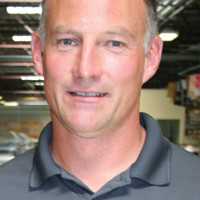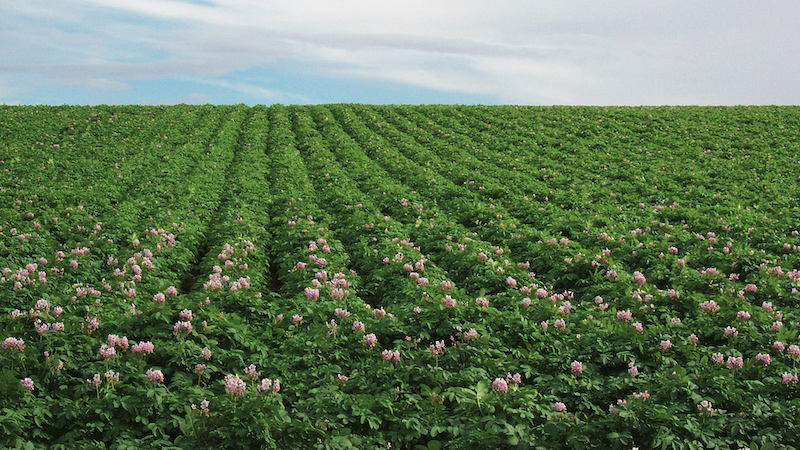Labor Remains Top Issue For Washington Growers

Asked what he thinks is the top issue facing Washington’s tree fruit industry, and David Douglas doesn’t hesitate to name labor. “It’s vital to the nature of our business in general,” he says, “and it’s the largest line item expense on our farm.”
To read about six other issues that will drive the future of the Washington apple industry, click here.
It’s appropriate that Douglas views the issue at both the macroeconomic and microeconomic levels, because that’s how he deals with it every day. He’s head of the family business, Douglas Fruit of Pasco, one of Washington’s “Tri-Cities,” and is the president of the Washington State Horticultural Association (WSHA). He says he’s learned a lot in the latter role, a post from which he will step down when the WSHA has their annual meeting in early December. First and foremost, he has learned a lot about politics, frequently traveling over the Cascade Mountains to the state capital in Olympia.
Besides being a physical divide, the mountain range that includes Mount Rainier and Mount St. Helens has always been something of a political divide. Looking at a map of the state, it breaks down appropriately enough, as Democrats dominate to the left of the mountains, Republicans to the right. But as Douglas has been finding out, there’s a reason for that old saying, “Politics makes for strange bedfellows.”
Independent Streak
Douglas has always felt easily at home in the GOP as a highly competitive fruit grower/packer/shipper who also cares deeply about the success of his industry on the whole. Douglas Fruit packed about 3 million boxes of apples last year, and another 1 million boxes of apricots, peaches, and nectarines, a significantly high number for Washington. In fact, while they packed less than 3% of the state’s 108-million box apple crop last year, they packed about half the state’s apricot crop. In addition to its own fruit, Douglas packs for independent growers in approximately a 60-mile radius, and then the fruit is marketed by Stemilt Growers.
Being in the stone fruit business has really helped him with his labor situation, says Douglas, because he has more work for his employees at times when an apple grower wouldn’t have nearly as much for them to do. For example, the stone fruit harvest starts much earlier. “It’s a big advantage over a grower who has just apples because it smooths out the labor demand curve,” he says.
Like most growers, he does a lot of the apple thinning with chemicals. But the stone fruit thinning is all done by hand, which requires a lot of man-hours. His number of warehouse employees doesn’t vary much, from 230 year-round to 300 at peak harvest. There is understandably a larger difference in the orchards, with the 100 year-round roster swelling to about 400 at harvest.
Amnesty Needed
Being so near the population of the Tri-Cities has also helped a great deal with sourcing labor, says Douglas. They’ve had enough pickers so that they’ve never left fruit unpicked, though they have been late. (That might have been the case again this year, as at press time for this article, not all the apples had been picked, and with a heavy crop and a lot of Pink Ladies — which are notoriously late — Douglas couldn’t be entirely sure.)
During this heavy crop year, Douglas is using H-2A for the second time, for about 10% of his pickers. The first time he used it, in 2009, it worked well. One of the requirements of using H-2A is that the grower must advertise the positions in the newspaper and at the local employment office. “In 2009, we didn’t have anybody show up,” says Douglas. “This year we had a couple, but they left after a day or two.”
Because of that unwillingness to do the work, like many growers in Washington he’s concerned about labor shortages. They’re going to have to raise wages, but that in itself doesn’t provide an answer. Is it going to come down to an amnesty program for those hard-working undocumented people who’ve been here a long time? “Nobody wants to say it, but, yeah,” says Douglas.
Educating Politicians
And therein lies the rub. While remaining a GOP loyalist, he has reached across the aisle, so to speak, and was meeting this past fall with Washington Senator Maria Cantwell, a Democrat, to discuss the labor issue. Douglas said he would feel remiss if he didn’t do something for his industry, but on the other hand he knows where his party leaders are coming from. He’s spoken at length with his own Congressional representative, Richard Norman “Doc” Hastings, a Republican. “His response is: ‘We’ll get 100 phone calls about immigration, and 90 of them are from people who want to deport the illegals,’” says Douglas. “I understand that mindset, but we have a system that is flawed. We have people who came to our country to work, to live — they are here because they function well.”
Douglas says he will continue trying to educate politicians — no matter where they are from or what party they represent — on the business of fruit growing. “We keep saying, come out to our orchards, our packing facilities, and look around,” he says. “These jobs are hard, and during harvest they are seven days a week. Let’s be honest, they have to want to do the work.”
But he doesn’t pretend to have a viable answer, because it appears that many of the people who want to do the work, the only people in the U.S. who will do the work, simply aren’t welcome. And that doesn’t make for a bright future. “We’re still a ways off from mechanical harvesting,” he concludes. “If we can’t get enough people, we’ll start to see a lot of fruit that will hit the deck.”









